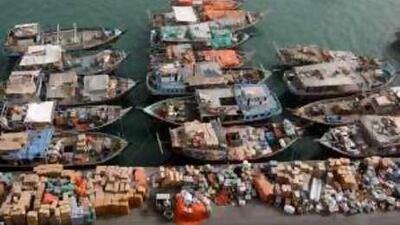The UAE's efforts to uphold UN sanctions against Iran are hampered by a lack of specificity, a senior customs official said. Saeed Khalifa Saeed al Marri, deputy director of the Federal Customs Agency, said it was difficult to stop dual-use technology, which could have civilian or military applications, from reaching Iran because UN sanctions were not sufficiently clear on what material was embargoed.
"When there was an embargo on Iraq, it was very clear what could or could not be sent there, but with Iran, we have repeatedly asked for better guidance from the UN, World Trade Organisation and elsewhere," he said. "The problem with dual-use goods is that you need an expert to know what can be used in a bad way or not. We have had to depend on ourselves for this." Authorities in the UAE have seized a number of cargoes destined for Iran that violated the UN sanctions, including a consignment of zirconium, a metal used in the construction of nuclear reactors.
A man was charged in March in relation to that seizure, and his case is progressing through the Dubai courts. "That happens by co-operating with our allies," Mr Marri said. "It happens a lot. Whenever we know about something we act accordingly." Responding to the news that UAE companies were indicted in the US on charges of breaking the unilateral US embargo on Iran, Mr Marri said the UAE could not completely halt trade with Iran.
"We have very strict direction from our superiors to implement all the UN resolutions as much as we can," Mr Marri said, who added that the UAE was also trying to help people who traded legitimate goods. "We are taking with one hand and giving with the other hand. The ones who are good we are trying to help, and the ones who are not good we are trying to stop," he said. "You cannot just come and stop everything. There are historical linkages between the UAE and Iran."
A major challenge for the authorities is monitoring the large number of dhows that travel between Iran and the UAE, laden with goods. Hundreds of the small vessels travel between the two countries daily. Nasser Hashempour, the vice president of the Iranian Business Council in Dubai, said anyone involved in trade between the UAE and Iran was aware of the influence of the US in the region. "At the ports, all the goods going to and from Iran are checked much more cautiously than those from elsewhere," he said.
The size of Iran meant the unilateral sanctions imposed by the US could have only a limited impact on trade, Mr Hashempour said. "All the neighbouring countries know it has very big potential. It has a population of 73 million, and they don't want to lose that market by listening to the desire of a third country. "If it is the United Nations, every country should obey the boundaries of the UN. But if it is just one country saying 'don't trade', I don't think people here would buy that."
Another Iranian businessman, who did not want to be identified, said US sanctions were actually strengthening the government in Tehran. "People in Iran like Americans, they like Europeans, but when they see everything in the markets getting more expensive, and the economy having problems, that pushes them closer to the government and against the US," he said. Neither the US nor the Iranian embassy responded to requests for comment on the indictments unsealed in New York on Wednesday.
gmcclenaghan@thenational.ae

